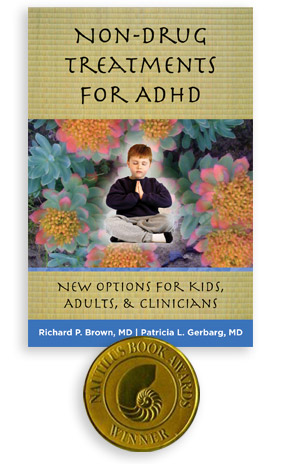Non-Drug Treatments for ADHD New Options for Kids, Adults, and Clinicians
Safe and effective complementary treatments for helping kids manage ADD. The prolific use of stimulants to treat ADD/ADHD is a controversial topic in therapy. This handbook-for practitioners and parents alike-guides readers through an array of alternatives: herbs, vitamins, nutrients, neurotherapy, meditation, and more. Treating the condition in combination with other diagnoses, like learning and mood disorders, is also addressed.
Richard P. Brown, MD, is associate clinical professor of psychiatry, Columbia College of Physicians and Surgeons. He lives in Kingston, New York.
Patricia L. Gerbarg, MD, is assistant clinical professor of psychiatry at New York Medical College. She lives in Kingston, New York.
Awards
Foreword Reviews' Book of the Year Award 2013 - Psychology - Gold (1st place)
Independent Publisher Book Awards 2012 - Psychology and Mental Health - Gold (1st place)
National Indie Book Awards 2013 - Psychiatry - Gold (1st place)
Nautilus Awards (Better Books for a Better World) 2013 - Health and Healing - Gold (1st place)
Hardcover
ISBN 978-0-393-70622-2
6.1 x 9.3 in / 304 pages
Table of Contents
Preface
A Many-Splendored Thing: What Is Attention Deficit Hyperactivity Disorder and Where Does it Come From?
Why Sweat the Science? Getting to Know the Three Faces of ADHD
From the Master Chemist: Herbs, Melatonin, and Nootropics (Brain Boosters)
Food Glorious Food: Diet, Vitamins, and Nutrients
When the Body Talks the Brain Listens: Mind-Body Practices for ADHD
Neurofeedback Therapy and Brain Stimulation
Just Desserts

